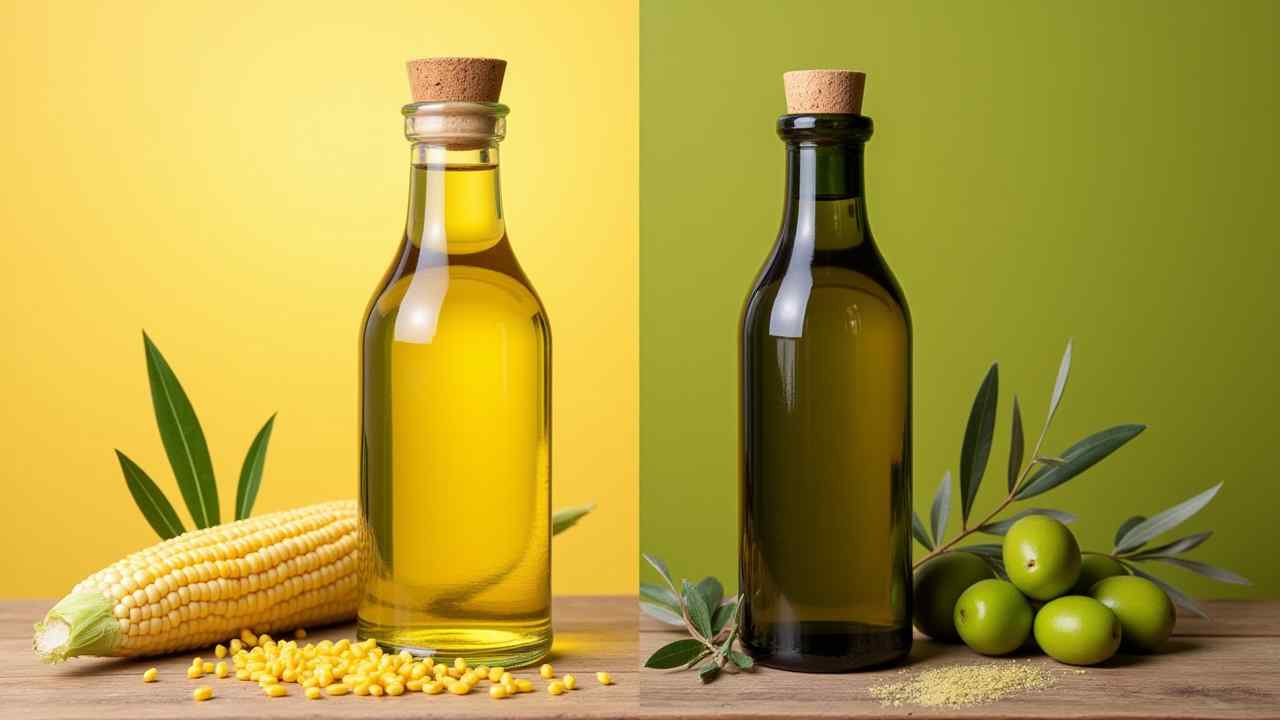
🫒 Vegetable Oil vs. Olive Oil: Are They the Same? A Guide
🫒 Vegetable Oil vs. Olive Oil: Are They the Same? (A Chef's Guide) 🫒
The cooking oil aisle at the grocery store can be a confusing place. You will see bottles of "vegetable oil" right next to bottles of "olive oil." They look similar, and their names sound related. This leads to a very common question: is veg oil and olive oil the same thing?
The simple and direct answer is no. They are very different products. They come from different sources, are made in different ways, and have completely different flavors and uses in the kitchen. Understanding this difference can make your cooking healthier and more delicious.
This guide will break down the key differences. We will explain what each oil is and what it is best used for. Let's clear up the confusion in the oil aisle. ✅
🤔 What Exactly is "Vegetable Oil"?
The term "vegetable oil" is a very generic label. It does not refer to a single type of oil. Instead, it is typically a blend of oils that have been extracted from various plants. The specific plants are usually listed in the ingredients.
The most common sources for vegetable oil are soybeans, corn, canola (rapeseed), and sunflower. The oil is extracted using heat and chemical solvents. It is then highly refined, bleached, and deodorized. This process removes nearly all of its natural flavor, color, and nutrients.
The result is an oil with a very neutral taste and a high smoke point. This makes it suitable for high-heat cooking where you do not want to add any flavor.
🌿 What is "Olive Oil"?
Olive oil is very different. It comes from one single source: the pressing of fresh olives. It is not a blend. In regions like the Mediterranean, particularly in places like Türkiye, olive oil ("zeytinyağı") is a cornerstone of the cuisine. It is valued for both its flavor and its health benefits.
There are different grades of olive oil. Extra Virgin Olive Oil (EVOO) is the highest quality. It is unrefined and cold-pressed. This means it retains its full, fruity, and peppery flavor. It also keeps all of its beneficial antioxidants. Regular or "light" olive oil is more refined and has a milder flavor.
Because it is less refined, extra virgin olive oil has a lower smoke point. It is best used for its flavor, not for high-heat cooking.
⚖️ What Are the Key Differences in a Nutshell?
Let's summarize the main points in this vegetable oil vs. olive oil comparison. It is a question of a blend versus a single source, and refinement versus flavor.
- Source: Vegetable oil is a blend (soy, corn, etc.). Olive oil is only from olives.
- Processing: Vegetable oil is highly refined. Extra virgin olive oil is unrefined.
- Flavor: Vegetable oil is neutral and flavorless. Olive oil is flavorful and aromatic.
- Health: Olive oil is praised for its monounsaturated fats and antioxidants. The health profile of generic vegetable oil is more debated due to its processing.
🧑🍳 When Should You Use Each Type of Oil?
Choosing the right oil for the job is a key cooking skill. Here is a simple guide to help you decide.
Use vegetable oil when: You need a high smoke point and a neutral flavor. It is best for deep-frying, searing meat at very high heat, or in baking recipes where you do not want any oily taste.
Use olive oil when: You want to add flavor and are cooking at a lower temperature. Use extra virgin olive oil for making salad dressings, sautéing vegetables, and drizzling over finished dishes like pasta or soup. A regular, more refined olive oil can be used for general-purpose cooking.
So, the answer to "is veg oil and olive oil the same" is a definite no. They are two distinct products with different purposes in the kitchen. 🍳